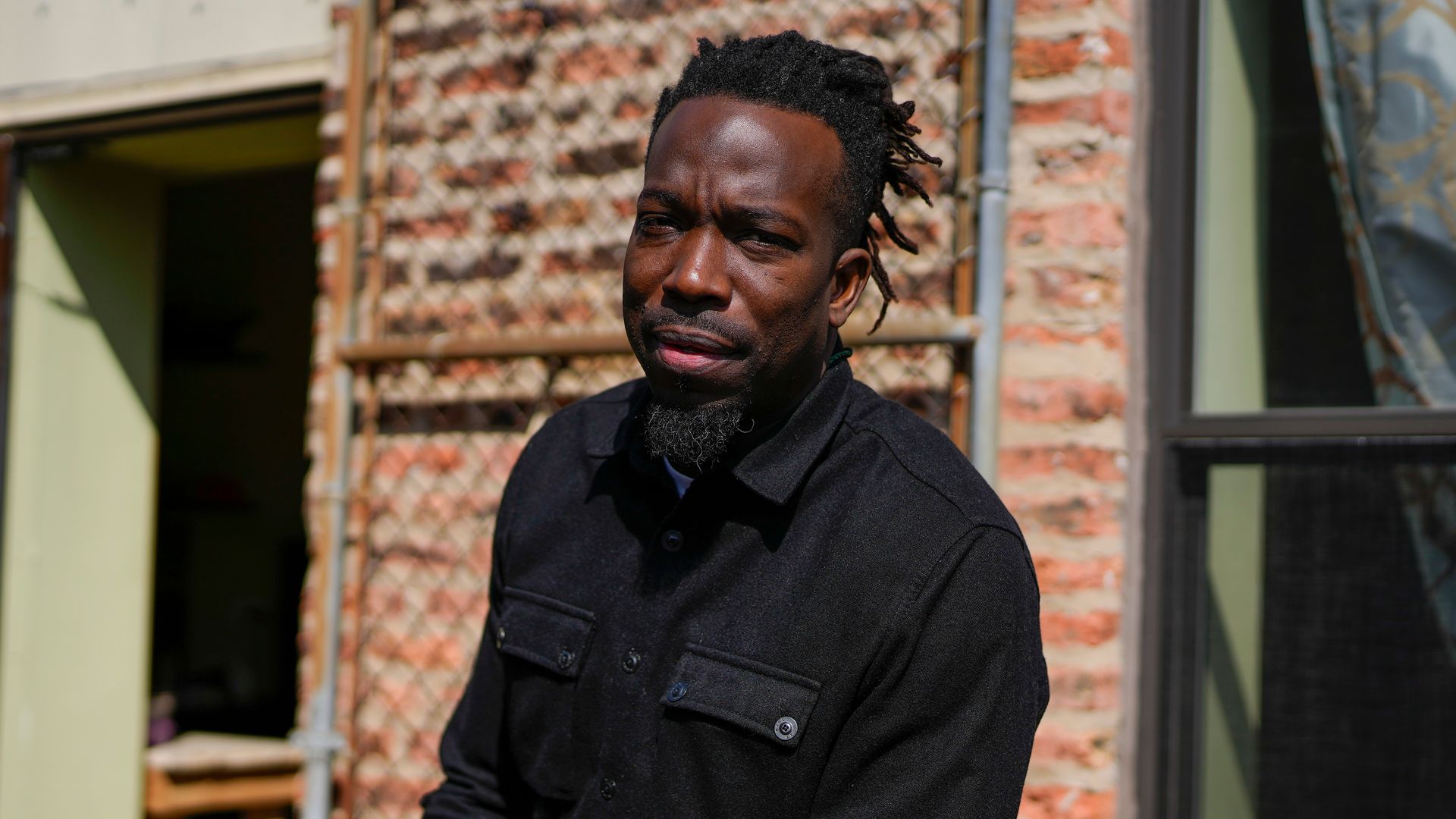
[MICHAEL YOUNG BAY]
$70 million. Y’all won’t even put a million dollars in one neighborhood. A million dollars in one neighborhood.
[LAUREN TAYLOR]
CHICAGO IS ONE OF SEVERAL MAJOR U.S. CITIES DEALING WITH A SURGE OF MIGRANTS.
THE CITY HAS SPENT MORE THAN $300 MILLION TO TEND TO MORE THAN 38,000 IMMIGRANTS.
FROM HEALTH CARE TO HOUSING AND EDUCATION.
THE FUNDS HAVE MOVED FAST.
AND IT’S LEADING TO FRUSTRATION IN THE CITY’S MINORITY COMMUNITIES.
BLACK CHICAGOANS SAY THEIR NEIGHBORHOODS ARE IN DECAY AND HAVE BEEN FOR DECADES WITH LITTLE HELP FROM THE CITY.
BUT THEY NOTE MONEY IS FLOWING AND FLOWING QUICKLY FOR THE IMMIGRATION CRISIS
THEY POINT TO WHAT THEY SEE AS A SYMBOL OF THE GOVERNMENT’S INDIFFERENCE:
THE CITY CLOSED WADSWORTH ELEMENTARY MORE THAN A DECADE AGO, A SCHOOL THAT SERVED A LARGELY BLACK NEIGHBORHOOD.
LAST YEAR, CHICAGO REOPENED IT TO SHELTER HUNDREDS OF MIGRANTS.
NO COMMUNITY INPUT WAS SOUGHT.
[CHAUNCEY D. BROWN]
There’s homeless and houselessness at a high rate, and money is being found for those that are just getting here. But what about those who have been living in neighborhoods that have been stripped of banks, stripped of grocery stores, stripped of quality education, and all of a sudden there is a group that is coming in and it’s causing animosity between the citizens and the new generation of people that are coming in.
[LAUREN TAYLOR]
TENSIONS BOILED OVER AT A CITY COUNCIL MEETING EARLIER THIS WEEK.
AFTER A PROPOSAL TO SPEND 70 MILLION MORE DOLLARS ON THE MIGRANT CRISIS.
[P-RAE EASLEY]
We need that money in my neighborhood. We need that on my block. That money should not be at Cook County Jail because she’s grieving over a random act of violence that caused her child to die in front of her face when the city of Chicago has millions upon millions of dollars to give to people who ain’t paid a dime into the tax-base.”
[TAWAN SIMS]
“Y’all whittling us all out. And y’all doing it in such a gracious fashion. Y’all represent us as y’all do it. This what y’all doing.
[LAUREN TAYLOR]
COMMUNITY LEADER RICHARD WALLACE SAYS THE WANTS OF BLACK CHICAGOANS ARE NOT TAKING AWAY FROM THE NEEDS OF OTHERS.
[RICHARD WALLACE]
“When black people say, we want parks, that doesn’t mean that we don’t want X for migrants. When black people say we want jobs. That does not mean that we’re saying we don’t want jobs in the market. And so the conflating of the issues together, right, is part of the problem.”
[LAUREN TAYLOR]
THE CITY HAS NOW BEGUN TO LIMIT SOME ACCOMMODATIONS FOR MIGRANTS.
BUT THAT’S CAUSED BACKLASH TOO.
LAST MONTH, CHICAGO EVICTED MIGRANTS WHO OVERSTAYED A 60-DAY LIMIT AT SHELTERS.
IMMIGRATION RIGHTS GROUPS CONDEMNED THE MOVE.
AND RESIDENTS CITED SAFETY CONCERNS.
BUT SOME SAY THE CITY WAS PUT IN A DIFFICULT SITUATION TO BEGIN WITH.
[REV. CHAUNCEY D. BROWN]
“The thousands of migrants that are being shipped to Democratic led cities, with African American mayors being pawned on to underserved communities is unfair to both the communities, but also unfair to the humanity that is forced to be dropped off at police stations, dropped off in the middle of underserved neighborhoods.”







